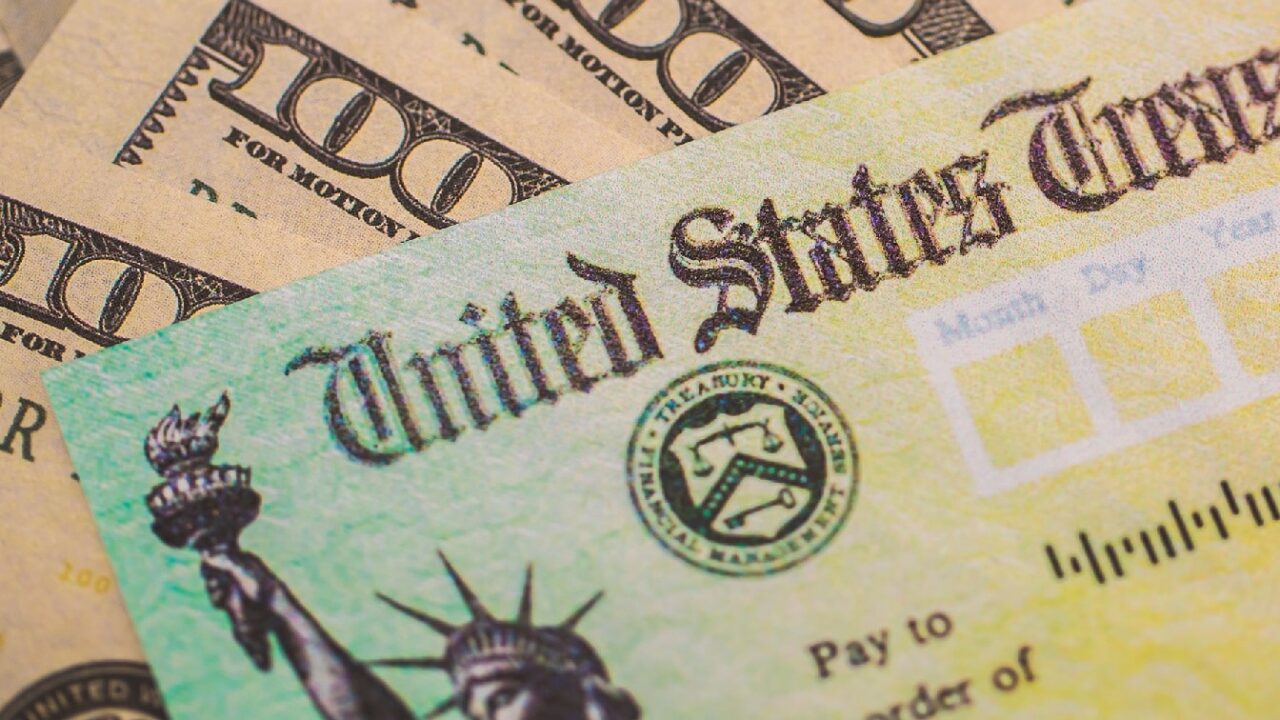Economists Say COVID Stimulus Checks Made Inflation Worse – In an analysis from the Federal Reserve Bank of San Francisco, four economists argue that the reason the United States is experiencing higher inflation than other countries is the extent to which the federal government issued stimulus checks and spent federal money on COVID-19 relief.
Published on March 28, the analysts note that the inflation rate in the United States has long tracked other developed economies closely, but that this trend has changed in recent years.
However, since the first half of 2021, U.S. inflation has increasingly outpaced inflation in other developed countries,” analysts Òscar Jordà, Celeste Liu, Fernanda Nechio, and Fabián Rivera-Reyes write.
“Estimates suggest that fiscal support measures designed to counteract the severity of the pandemic’s economic effect may have contributed to this divergence by raising inflation about 3 percentage points by the end of 2021.”
By using the Phillips curve logic – a model that describes the inverse relationship between unemployment and inflation – the analysts discovered a correlation between pandemic support measures and inflation. They found that the United States’ aggressive support measures – compared to less substantial support measures in other developed economies – drove inflation much higher.
By modeling inflation without fiscal support, the analysts found that U.S. direct stimulus check payments “may have contributed to an increase in inflation of about 3 percentage points by the fourth quarter of 2021.”
“The United States is experiencing higher rates of inflation than other advanced economies,” the analysts write. In this Economic Letter we argue that, among other reasons explored by the literature, the sizable fiscal support measures aimed at counteracting the economic collapse due to the COVID-19 pandemic could explain about 3 percentage points of the recent rise in inflation.
After the Stimulus Checks: Where Is Inflation Right Now?
Speaking at the Bloomberg Wealth Summit in New York this week, co-head of global Private Wealth Management Meena Lakdawala-Flynn said that inflation in the United States appears to be peaking.
“In the US, we do think that inflation is peaking right about now,” she said. “We think the probability of a recession has increased in 2023.”
Consumer prices are currently the highest they have been in 40 years, with inflation reaching 7.9% in February.
While inflation may be pealing, however, it doesn’t necessarily mean that prices will fall dramatically. Writing for Barrons, Randall Forsyth notes how 72% of consumer spending falls into what is known as “close-to-trend” prices – which are increasing.
“These are mainly services, which means they are unlikely to be imported and tend to be labor-intensive,” he writes. “These accounted for 3.4 percentage points of the 5.4% rise in core PCE and could continue to run strong and offset the disinflationary impact of slowing goods prices.”
He added that as the cost of fuel and gas stop increasing – though, notably are not dropping substantially – the less-visible costs of services, including rent, will “likely continue to rise.”
Jack Buckby is a British author, counter-extremism researcher, and journalist based in New York. Reporting on the U.K., Europe, and the U.S., he works to analyze and understand left-wing and right-wing radicalization, and reports on Western governments’ approaches to the pressing issues of today. His books and research papers explore these themes and propose pragmatic solutions to our increasingly polarized society.

